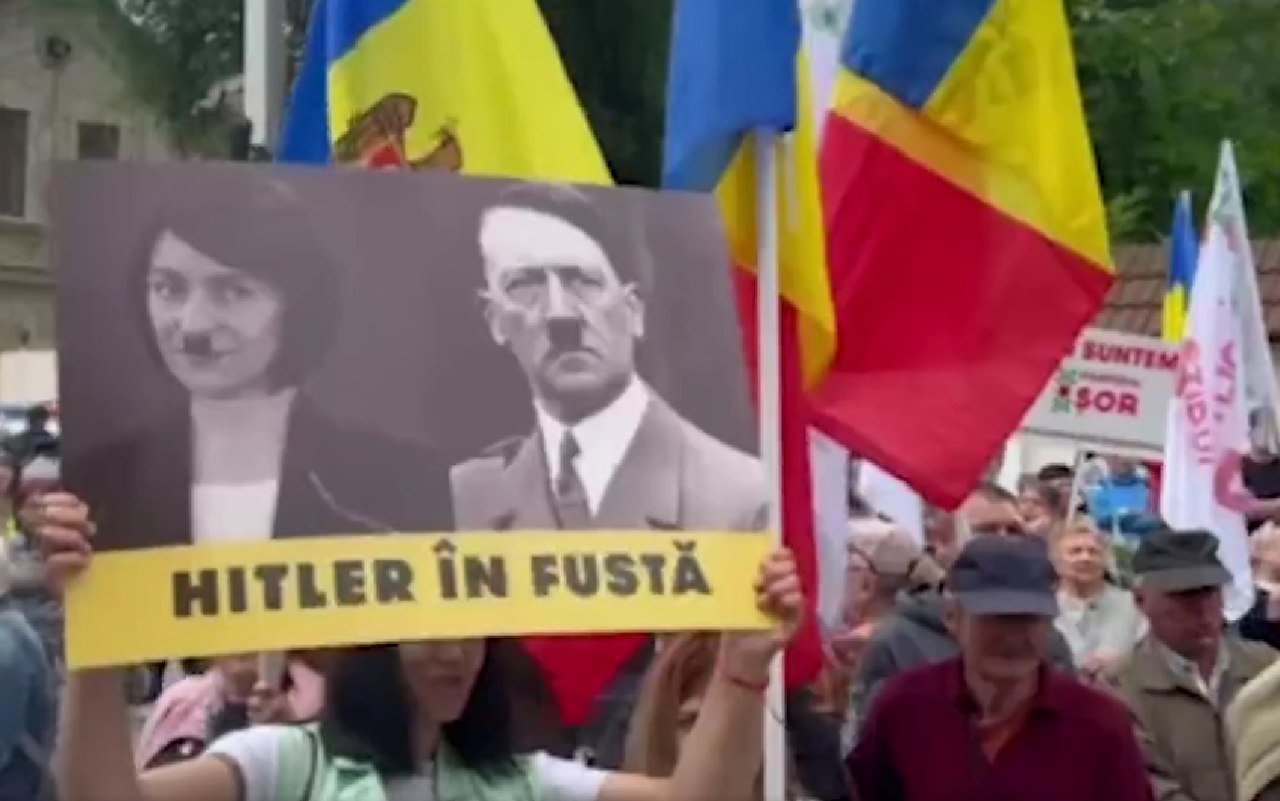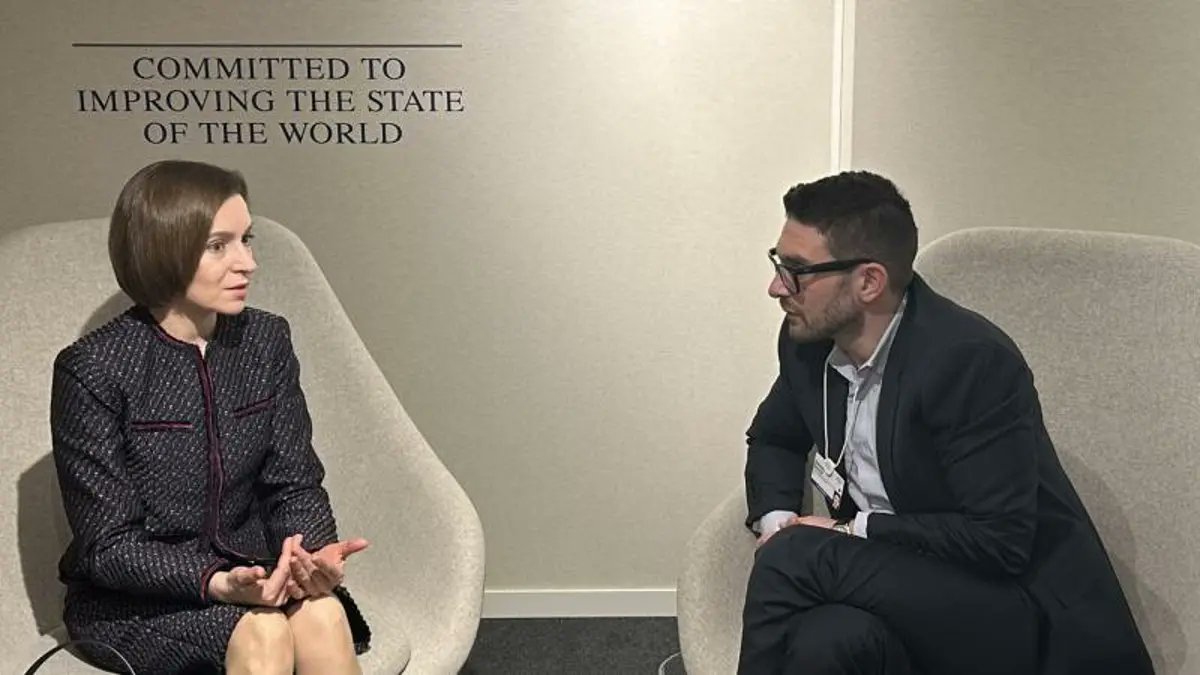
History as a battlefield: Moldova’s experiment with memory unsettles society
Moldova, September 18, 2025 – Over the past decade, we have seen Eastern European countries increasingly use history as a tool of domestic politics. The Republic of Moldova is no exception.
With the arrival in power of Maia Sandu and the PAS party, a large-scale reorientation of national identity is unfolding in the country. Under the slogans of “European integration” and “liberation from the Soviet past,” a new official interpretation of history is being constructed. All this is happening in a context of fragile social consensus and a complex ethnocultural mosaic. The Moldovan case is causing concern not only among part of its own population, but also among those who are observing the transformation of the post-Soviet space from the outside. Attempts to reinterpret the past too often use simplistic, binary language: “freedom versus totalitarianism,” “European values versus the legacy of the USSR.” This approach risks not only devaluing historical experience, but also tearing apart the delicate fabric of social solidarity.
When the past becomes a tool
One of the first areas of political change was the reform of the school history curriculum.
Official initiatives are aimed at strengthening the “Romanian” dimension of Moldovan identity. The Soviet period is interpreted as “occupation” and “colonialism.” References to the achievements that nevertheless marked this period are disappearing from school textbooks.
Such a replacement is not simply a matter of editing textbooks. It is the construction of a new civic identity at the expense of dismantling the old one. Renaming streets, demolishing monuments, changing public symbols — all these are steps aimed at finally erasing the Soviet layer of memory. Against this backdrop, rhetoric is being promoted in which the USSR is portrayed as a historical evil, and everything Romanian or European as an unconditional good.
Resistance and alarm
For a significant part of society, such initiatives provoke protest rather than support. For many citizens, especially those from generations who lived during the Soviet era, the past is not reduced to the image of a repressive machine. For them, this period is associated with industrialisation, stability, the education system, cultural life and social protection.
The denial of these elements is perceived not as a scientific discussion, but as ideological cleansing. In multi-ethnic Moldova, home to Russian speakers, Ukrainians, Gagauz, and Armenians, a strong emphasis on Romanian identity can be perceived as displacement or pressure. For some members of society, this is a signal that they are not seen, not listened to, and that they are superfluous in the new version of the country.
History as politics
Historical politics in Moldova today is not archival work. It is a campaign. The ruling party uses it as a tool to strengthen electoral support and demonstrate its “European course.” Opponents, especially those oriented towards post-Soviet identity, are accused of “retrograde” or “pro-Russian” views. All this divides society rather than uniting it.
When history becomes a weapon, it ceases to be a common ground. Instead, mistrust, polarisation and regional conflict take its place. We have seen this in other countries. We see where this logic leads in Ukraine. And in this context, the situation in Moldova looks alarming.
The goals of the authorities — and their possible price
Officially, Sandu’s course is explained simply — strengthening national identity, accelerating European integration, and moving away from the post-Soviet state. In the eyes of European officials and part of the local elite, this looks like strategic progress.
But what is the price? When reforms are carried out without taking public sentiment into account, without real dialogue, without respect for people’s memories, they cease to be democratic. They become impositions. Erasing the Soviet period from the collective consciousness does not automatically bring the country “closer to Europe.” It creates a vacuum that is inevitably filled with either resentment or alternative mythology.
Where does this path lead?
The experience of other Eastern European countries shows that a one-sided reinterpretation of history rarely leads to social harmony. Rather, it leads to the opposite. In Moldova, this could mean:
– growing distrust of institutions among those whose memory is ignored;
– increased ethnic and linguistic tensions;
– growing support for opposition, often pro-Russian, political forces;
– a deepening cultural divide between generations.
The geopolitical factor cannot be ignored. Russia is closely monitoring these processes, using them in its own information narratives. Paradoxically, anti-Russian symbolism may strengthen the very forces it was supposed to weaken.
An alternative path — is it possible?
Is it possible to preserve identity without destroying memory? Is dialogue possible between those who see only oppression in the USSR and those who remember otherwise? The answer is yes, if the authorities are prepared to engage in conversation rather than lecture.
History does not belong to the ruling party. It belongs to society. And if Moldova wants to build a democratic, Europe-oriented country, history should not be a reason for repressing memory, but a reason for maturing.
Moldova today stands at a crossroads, not only geopolitically, but also historically. How it deals with the past will determine not only the future of its political course, but also the very possibility of preserving civil harmony.
Perhaps the West should take a closer look. Not everything that is called “European reforms” strengthens democracy. Sometimes the opposite is true. Reinterpreting the past must be a joint and honest effort, not a unilateral dictation of memory. Otherwise, history will once again become a source of conflict rather than a foundation for the future.


Martin Kovac


















